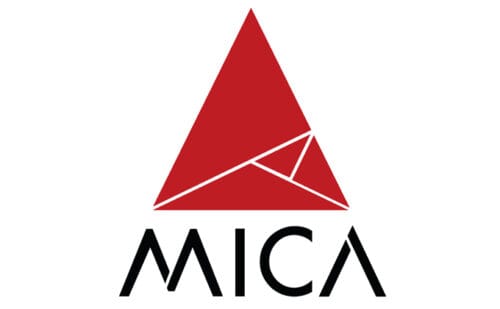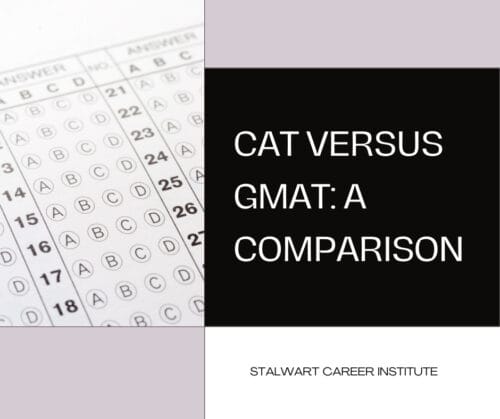CAT vs GATE: A Detailed Comparison of Career Paths, Opportunities, and Exam Preparation
When it comes to postgraduate education and career advancement in India, two of the most prestigious entrance exams are the Common Admission Test (CAT) and the Graduate Aptitude Test in Engineering (GATE). These exams cater to different domains, career aspirations, and skill sets. CAT is designed for students looking to pursue a career in business management, while GATE is more focused on engineering, technology, and research.
Choosing between CAT and GATE is often a crucial decision, as it can significantly influence your future career trajectory. In this detailed guide, we’ll compare both exams across various dimensions, helping you decide which one aligns better with your career goals.
Understanding CAT and GATE
What is CAT?
The Common Admission Test (CAT) is the premier entrance examination for admission to MBA and PGDM programs at the Indian Institutes of Management (IIMs) and other top business schools across India. CAT evaluates candidates on their verbal, quantitative, and logical reasoning skills. Since it opens doors to prestigious business schools, it is a highly competitive exam, with over 2 lakh aspirants appearing for it every year.
- Exam Conducting Body: IIMs (on a rotational basis)
- Eligibility: A bachelor’s degree with at least 50% marks (45% for reserved categories). Students from any academic background can appear for CAT.
- Mode of Examination: Computer-based (online)
- Structure: The test consists of three sections:
- Verbal Ability and Reading Comprehension (VARC)
- Data Interpretation and Logical Reasoning (DILR)
- Quantitative Ability (QA)
The focus of CAT is to assess analytical thinking, decision-making, and problem-solving abilities, which are essential in managerial roles.
What is GATE?
The Graduate Aptitude Test in Engineering (GATE) is a national-level entrance exam conducted for admission to postgraduate programs (M.Tech, M.E., Ph.D.) in engineering and sciences. Additionally, GATE scores are used for recruitment into Public Sector Undertakings (PSUs), making it a gateway to government jobs in prestigious organizations such as ONGC, IOCL, BHEL, and others.
- Exam Conducting Body: IITs and IISc (on a rotational basis)
- Eligibility: Bachelor’s degree in Engineering/Technology/Architecture or a Master’s degree in Science.
- Mode of Examination: Computer-based (online)
- Structure: GATE has both multiple-choice questions (MCQs) and numerical answer type (NAT) questions, and the syllabus varies depending on the chosen discipline (e.g., Mechanical Engineering, Computer Science, Electrical Engineering, etc.)
GATE is considered a highly technical and subject-specific exam, focusing on in-depth knowledge of engineering concepts and their applications.
Detailed Comparison: CAT vs GATE
| Criteria | CAT | GATE |
|---|---|---|
| Purpose | Admission to MBA programs | Admission to M.Tech/Ph.D. programs and PSU jobs |
| Target Audience | Students from any background aspiring for managerial roles | Primarily engineering/science graduates |
| Career Path | Business management, consulting, entrepreneurship | Engineering, research, academia, PSUs |
| Exam Sections | 3 (VARC, DILR, QA) | Varies by discipline (Engineering/Science + General Aptitude) |
| Skills Tested | Verbal reasoning, logical thinking, quantitative aptitude | Technical knowledge, problem-solving in engineering/sciences |
| Average Salary | ₹15-25 lakhs p.a. (varies by institute and industry) | ₹10-15 lakhs p.a. in PSUs, higher in private sector |
| Exam Duration | 2 hours | 3 hours |
| Difficulty Level | Moderate to high | High (depending on engineering discipline) |
| Job Flexibility | High: Cross-industry mobility, leadership roles | Moderate: Primarily technical/engineering roles |
| Frequency of Exam | Once a year | Once a year |
Career Opportunities After CAT
One of the biggest advantages of pursuing CAT is the flexibility it offers in terms of career choices. An MBA opens doors to diverse industries, including finance, marketing, consulting, e-commerce, operations, and IT. Many MBA graduates are groomed for leadership roles, offering rapid career growth and high salaries.
Some common career paths after an MBA include:
Marketing Manager: Manage the marketing strategies of large corporations, handling product launches, branding, and digital marketing campaigns.
Business Consultant: Work with leading consulting firms such as McKinsey, BCG, or Bain, helping businesses solve complex problems, improve efficiency, and increase profitability.
Financial Analyst: Join investment banks, venture capital firms, or private equity firms, where you’ll analyze financial data, evaluate investments, and assist in corporate financing.
Operations Manager: Oversee supply chain management, production, and logistics for large manufacturing firms or service providers.
Entrepreneurship: MBA programs also emphasize entrepreneurship, providing the skills and network to start your own business or lead a startup.
Career Opportunities After GATE
GATE offers specialized career paths, focusing on technical expertise and research-oriented roles. A high GATE score can lead to:
Postgraduate Studies (M.Tech/M.E.): Admission to prestigious institutions like IITs, NITs, and IISc, where you can specialize in various engineering fields. Postgraduate degrees are highly valued in both academia and industry.
PSU Jobs: GATE scores are used for recruitment in Public Sector Undertakings (PSUs) like ONGC, BHEL, NTPC, and IOCL. These jobs offer stability, good salary packages, and additional perks like housing, medical benefits, and retirement benefits.
Research and Development (R&D): Many candidates who score well in GATE pursue research roles in sectors such as aerospace, energy, materials science, and information technology.
Academic Careers: For those interested in teaching and academia, GATE scores can be used to pursue Ph.D. programs and eventually become professors or researchers in engineering colleges and universities.
Salary Comparison: CAT vs GATE
Salary After CAT
MBA graduates from top institutions such as IIMs, ISB, XLRI, FMS, and SPJIMR often command high salaries right from the start. The average package for IIM graduates can range between ₹15-25 lakhs per annum, with top performers securing packages as high as ₹50 lakhs or more. Additionally, the salary progression in managerial roles is often rapid, especially in sectors like consulting, finance, and technology.
- Top Industries Hiring MBA Graduates: Consulting, Banking & Finance, FMCG, IT, E-commerce, Healthcare, and Manufacturing.
Salary After GATE
For GATE-qualified candidates who secure PSU jobs, the starting salary ranges from ₹10-15 lakhs per annum, along with various other benefits such as job security, healthcare, and housing allowances. However, the salary progression is typically slower compared to the private sector. On the other hand, candidates joining private engineering firms or R&D roles might start with slightly higher packages, but the technical nature of the roles limits career flexibility.
- Top Sectors Hiring GATE Graduates: PSUs, Core Engineering (Mechanical, Civil, Electrical), R&D, Manufacturing, and Academia.
Which Exam Is Harder: CAT or GATE?
Both exams are highly competitive, but their difficulty levels vary depending on your strengths and academic background.
Difficulty Level of CAT
CAT is known for its unpredictability and time pressure. The questions aren’t necessarily hard, but the challenge lies in managing time and maximizing accuracy. The three sections—Verbal Ability, Logical Reasoning, and Quantitative Aptitude—demand strong analytical skills. Many candidates find the Verbal Ability and Reading Comprehension sections difficult, as they require a good command of the English language and critical thinking.
- How to Excel in CAT: Successful candidates usually dedicate 6-12 months to intensive preparation, solving mock tests, and focusing on speed and accuracy.
Difficulty Level of GATE
GATE is considered more difficult for candidates who don’t have a strong grasp of their undergraduate technical subjects. Since it tests the depth of knowledge in engineering, technology, and sciences, candidates must have a solid understanding of core concepts. In addition, numerical questions (NAT) can be tricky, as they require precise calculation without any options to choose from.
- How to Excel in GATE: GATE preparation demands 8-12 months of dedicated study, focusing on technical subjects, previous years’ question papers, and reference books for specific engineering disciplines.
Exam Preparation: What’s the Right Strategy?
Preparation Strategy for CAT
The CAT exam focuses on aptitude rather than rote learning, making it necessary to develop skills in problem-solving, logical reasoning, and reading comprehension. Here are some tips to prepare for CAT:
Verbal Ability (VARC): Focus on reading comprehension, vocabulary, grammar, and sentence correction. Regular reading of newspapers, novels, and business journals can help improve your command of language.
Logical Reasoning (DILR): Practice puzzles, seating arrangements, data analysis, and pattern identification to improve speed and accuracy.
Quantitative Aptitude (QA): Strengthen your basics in arithmetic, algebra, geometry, and number systems. Focus on problem-solving techniques and shortcut methods.
Mock tests and coaching from reputable institutes can help you gauge your performance and improve weak areas.
Preparation Strategy for GATE
GATE requires a deeper focus on technical knowledge and problem-solving in your chosen field of study. Here’s how to tackle it:
Core Engineering Subjects: Prioritize understanding core concepts and solving numerical problems. Reference standard textbooks, watch online lectures, and solve previous years’ papers.
General Aptitude: Don’t ignore this section, as it can significantly impact your overall score. Practice basic mathematics, English grammar, and logical reasoning.
For GATE, conceptual clarity is more important than speed, so focus on building strong fundamentals.
Why MBA Might Be a Better Choice for a Broader Career Path
While both CAT and GATE offer great opportunities, an MBA through CAT may provide broader career prospects compared to the more specialized careers after GATE. With an MBA, you’re not restricted to any particular industry, and your career trajectory can take you into management, consulting, finance, or even entrepreneurship. The ability to switch industries, adapt to new roles, and lead teams across domains gives MBA graduates a distinct advantage.
On the other hand, GATE is ideal for those deeply passionate about engineering, research, or technical fields. While it offers stable government jobs and a clear path in academia or R&D, the growth and flexibility offered by an MBA might be more appealing to those looking for faster career advancement, leadership roles, and the ability to influence organizational strategies.
Conclusion: Making the Right Choice
Ultimately, the choice between CAT and GATE comes down to where you see yourself in the future. If you dream of managing teams, building businesses, and working across industries, CAT and an MBA will pave the way for a fulfilling career. However, if you are passionate about engineering, technical innovation, or research, GATE will help you achieve your goals in specialized fields.
Each path offers its own set of advantages, but if versatility, leadership, and high earnings potential are what you’re aiming for, CAT could be the more rewarding choice in the long run.




